Storing and preserving herbs
You don't always need fresh herbs. And sometimes you want to preserve them to
have them on hand whenever you need them. Here are some tips.
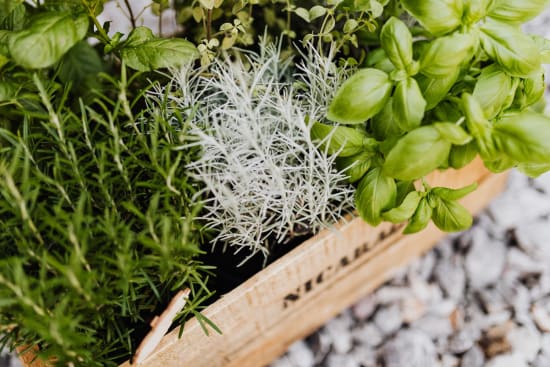
Storing herbs for a few days
Fresh herbs taste best, no doubt about it! If that's not possible,
wash them, pat them dry and wrap them in a plastic bag or place on
a piece of damp kitchen paper inside a plastic container that you
should put in the vegetable compartment. You can store delicate
herbs such as chervil, mint, dill, chives, lemon balm and lovage
like this for up to five days, hardier herbs such
as rosemary, sage and thyme will last for up to ten days.
Tip: don't put your herbs in water after buying. If you do, they
will tend to lose their nutrients more quickly and wilt because
their metabolic processes continue to run. If you need to store
herbs for longer periods,
you can dry them, freeze them or put them in oil.
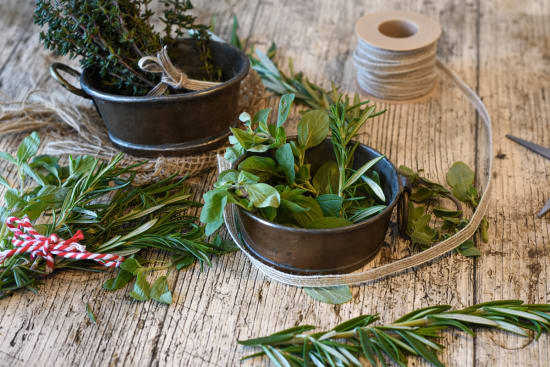
Drying herbs
If you would always like to have some fresh herbs on stock, you can dry them.
To dry your herbs, tie them in small bundles and hang them up
somewhere shady and well aired, with as little dust as possible.
The room temperature should be between 20 and 30 degrees.
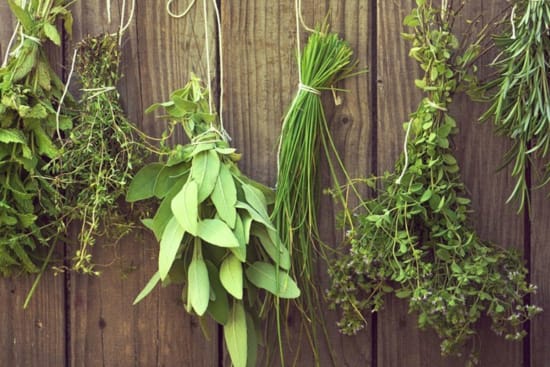
The faster the plants dry, the better.
The optimal drying time is between 24 and 48 hours.
When thoroughly dry, transfer them to airtight glass jars. Suitable for drying are dill, tarragon, oregano,
marjoram, mint, parsley, rosemary, sage, chives and thyme.
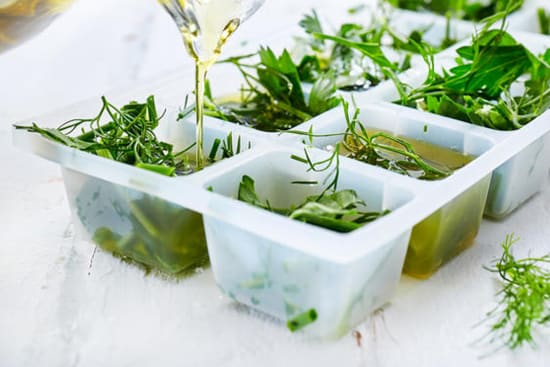
Freezing herbs
Fresh herbs can also be frozen. Wash your herbs, pat dry,
chop and fill an ice cube tray with them. Add a little water and
place in your freezer compartment. Now you have a stock of
portion-size herb cubes, ready to add to your cooking from
frozen as you need. Herbs such as dill, tarragon, oregano,
flat-leaf parsley,
rosemary, sage, chives and thyme can be frozen.
Alternative: you can also use butter instead of water for the herb cubes.
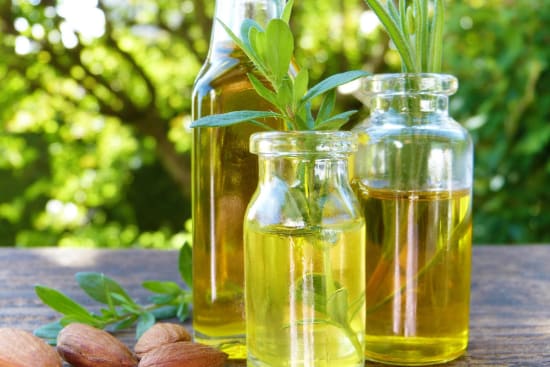
Placing herbs in oil
Finally, you can wash, dry and finely chop your favorite herbs and
store inside small screw-top glass jars, mixed or separately.
Add enough cooking oil to cover the herbs by about
2 cm. A few weeks later you will have an excellent herb oil.
A cold-pressed olive oil,
a rapeseed or sunflower oil are suitable as a base oil.
More exciting topics about herbs
Sage, Rosemary & Thyme
Sage, rosemary and thyme make us dream of the Mediterranean, of Italy and Provence. They intensely flavor and are very easy to care for.
Marjoram & Oregano
Marjoram and Oregano do belong to the same plant genus. But while marjoram can be combined with other spices, oregano is more commonly used alone.
Parsley & Chives
Parsley and chives shouldn't be planted next to each other because they don't get along. But in the kitchen, they are the most used allrounders.
Basil & Mint
Special and always a delight: basil and mint require a delicate touch. But used correctly, these herbs are really great.
Dill, tarragon & coriander
From tart or slightly peppery to oriental: passionate amateur chefs also like to use special herbs. Dill, tarragon and coriander are three of them.
Storing and preserving herbs
You don't always need fresh herbs. And sometimes you want to preserve them to have them on hand whenever you need them. Here are some tips.
